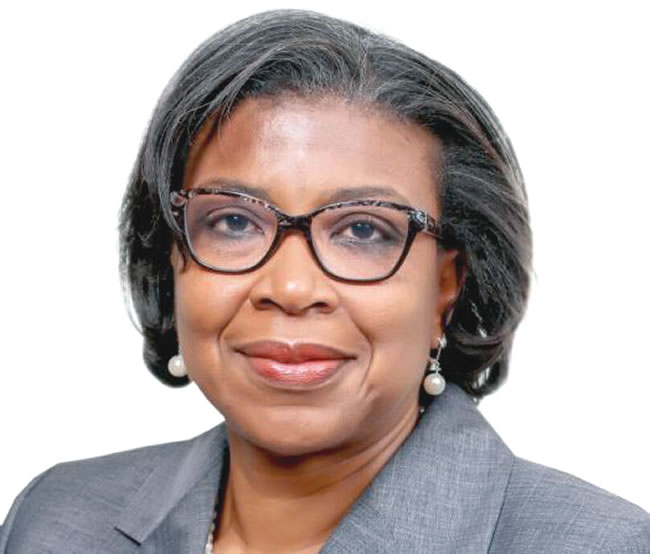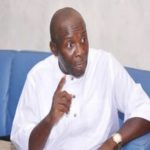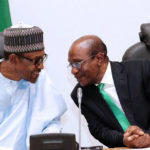Director General of the Debt Management Office, Patience Oniha, has said that international investors are very optimistic about Nigeria.
Oniha said this during an interactive session with journalists after a road show in New York City, America, to interact with investors on the fresh Eurobond the government plans to issue to part-fund the 2022 budget.
According to her, international investors find the Nigerian credit story credible. So, they have not relented in their support for the country since 2011.
She said, “The reason we came for the road show is really to meet with investors. We had one in September, and after the road show we were able to raise US$4 billion. So, this engagement is really a follow up on that meeting with investors. And our take away from the meetings is one; the investors, international investors, are still very optimistic about Nigeria… So in terms of interest and optimism, I would say, they are still very strong.”
She added, “One of the questions that kept coming up, anyway, was with regard to the balance of new external borrowing for 2021. As we know, in the 2021 budget, the new external borrowing is about US$6.1 billion, we’ve raised $4 billion while they are asking macroeconomic questions like growth in revenue, foreign exchange, they are also asking, are you coming to the market soon for the balance, when, and all of that.
“I believe that after this engagement, we are going to sit again with our transaction parties and take a decision on if and when we are going to approach the market for the balance. As you know, when any country or any company wants to go to the market, they have to look at the market conditions at anytime to decide how to proceed and when to proceed.”
Speaking at the same event, Ben Akabueze, Director General of the Budget Office, said although investors were concerned about the sustainability of Nigeria’s debt, the country was tackling this by focusing on revenue growth.
He said, “The only line of concern is the debt service to revenue ratio where increasing larger chunk of the revenues is going into debt servicing and that’s a major source of concern. But we are attacking that robustly in terms of efforts to grow our revenues and we are seeing that moving in the right path.
“We are trying very hard not to introduce new taxes or increase tax rates but focusing on unlocking efficiencies, collection efficiencies, expanding the tax net. Our focus is on non-oil taxes. On the oil revenue, there is of course the Petroleum Industry Act which we expect to unlock the flow of investments in that sector, increase activities and with that, of course, will come down the line, increase in revenues from royalties and taxation and all of that even though you are using a lower tax rate but you are taxing on a larger volume base and so even oil revenues should grow.”
Also speaking at the session with the media, Godwin Emefiele, CBN governor, said the government had made payment of debt its priority.
He said, “We have ensured that any of our debts that is due is given utmost priority, particularly foreign debts. It’s like first line charge and we ensure that wherever we are going to find the dollar we will pay any of our debts even before we service any obligation. That is a rule if it is any of Nigeria’s sovereign debt.”
The CBN governor assured that the country’s forex challenge would abate with the completion of Dangote Refinery.
According to him, the refinery coming on stream would save the country about 30 per cent of the FX spent on importation of items.
He stated further, “If you look at the cost of freight alone, it is a major saver for Nigeria. If we have to go to Europe or other parts of the world to import petroleum products we will pay heavily in freight, where we pay heavily even in stocking those products in the high seas before we off load them. You need to go to that site and you will see what is there. It is a project that we just pray somebody like Dangote will live long and see it to completion; Nigerians will benefit from it. That project is one of Nigeria’s backward integration programmes and we are very proud that it is coming to light.”
He continued, “That is on petroleum products. On the petrochemical, petrochemical is supposed to be coming on line about that same period, June/July next year. That petrochemical plant will be producing 900,000 tonnes of polyethylene and polypropylene granules. Nigeria’s annual consumption of polyethylene and polypropylene granules is less than 200,000 tonnes, what does that mean? By the contribution in import content, in FX content, that is close to about five per cent of our imports.
“If we save five per cent of our imports, save another 30 per cent in petroleum products and even fertiliser that is maybe around two to three per cent, we are moving close to saving about 40 per cent foreign exchange import for the country. By that time, you will be seeing what we will be doing in terms of when most people say allow the markets to float, we will float the market and let’s see how this currency will depreciate.”
YOU SHOULD NOT MISS THESE HEADLINES FROM NIGERIAN TRIBUNE
Lagos Is Second Least Liveable City In The World For 2021
Lagos is the second least liveable city in the world for the year 2021. This is according to the most recent annual ranking put together by the Economist Intelligence Unit (EIU)…
CLAIM 1: A Twitter user claims UNICEF said any efforts to block children from accessing pornography might infringe their human rights.
VERDICT: MISLEADING!
WATCH TOP VIDEOS FROM NIGERIAN TRIBUNE TV
- Let’s Talk About SELF-AWARENESS
- Is Your Confidence Mistaken for Pride? Let’s talk about it
- Is Etiquette About Perfection…Or Just Not Being Rude?
- Top Psychologist Reveal 3 Signs You’re Struggling With Imposter Syndrome
- Do You Pick Up Work-Related Calls at Midnight or Never? Let’s Talk About Boundaries






